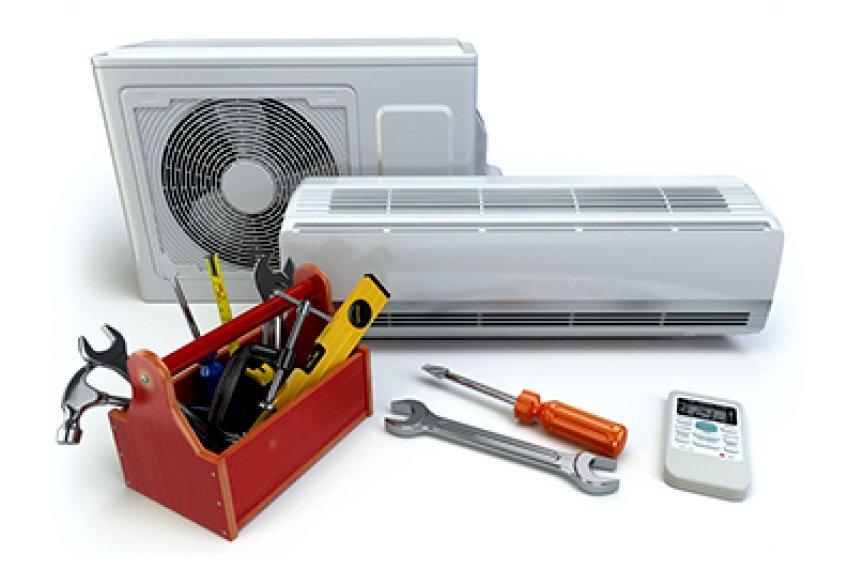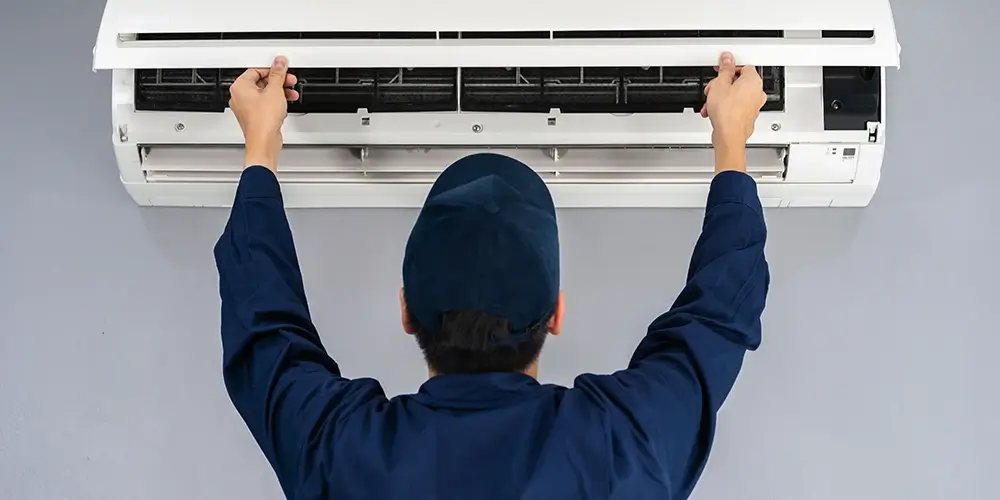Air Conditioner Repair Near Me Fundamentals Explained
Air Conditioner Repair Near Me Fundamentals Explained
Blog Article
Not known Factual Statements About Ac Repair Near Me
Air Conditioning Repair: Expert Cooling System Remediation Ensures Your Home Remains Comfortable All Year Round
Types of AC Systems
When taking on a/c repair work, understanding the type of cooling system you're dealing with can conserve time, money, and irritation. Ever questioned why some systems cool a space quicker than others? Or why particular systems seem to break down more frequently? Let's peel back the layers.
Central Air
Everything about Ac Air Conditioner Repair
Think of a cool breeze flowing through a whole house, whispering convenience into every corner. Central air systems do precisely that. They use a network of ducts to distribute cooled air, depending on a compressor and condenser outside, coupled with an evaporator coil inside. When this complex monster fails, identifying the issue can be like discovering a needle in a haystack.
Split Systems

Split systems are a popular choice for numerous homes-- part indoor system, part outdoor compressor. They offer versatility and performance, however their dual nature suggests repair work can include either element. Have you ever heard an unusual sound outside your house just to find the indoor unit isn't cooling? That's a traditional sign of a split system glitch.
Air Conditioner Repair Near Me Fundamentals Explained
Window Units
These compact warriors fight summertime heat by fitting comfortably into a window frame. They integrate all elements into a single box. Their simplicity typically implies fewer repair work headaches, however ignoring filters or enabling debris buildup can cause reduced efficiency or breakdowns.
Ductless Mini-Splits
What Does Ac Air Conditioner Repair Do?
Ductless systems bypass ductwork entirely, making them perfect for homes without existing ventilation. They're peaceful, effective, and remarkably durable. Yet, when repairs are required, professionals should be proficient at handling refrigerant lines and electrical connections-- no little accomplishment.
Quick Recommendation Table
| Type | Key Features | Typical Repair Work Issues |
|---|---|---|
| Central air conditioning | Ductwork, whole-house cooling | Duct leakages, compressor failure |
| Split System | Indoor & & outside systems | Refrigerant leaks, fan motor problems |
| Window Unit | All-in-one, simple installation | Filthy filters, electrical faults |
| Ductless Mini-Split | No ducts, zoned cooling | Line leaks, sensing unit malfunctions |
The smart Trick of Ac Air Conditioner Repair That Nobody is Talking About
Unwinding one of the most Regular AC Problems
Have you ever wondered why your a/c unit suddenly stops cooling throughout a sweltering afternoon? One typical perpetrator is an unclean or stopped up air filter. This tricky bad guy limits airflow, forcing your system to work overtime, which not just reduces effectiveness however can also cause premature breakdowns. Picture trying to breathe through a headscarf soaked in dust-- it's exhausting!
Another frequent misstep is refrigerant leaks. These unnoticeable leakages don't simply decrease cooling power but can also damage the compressor, the heart of your a/c system. How frequently do you examine for unusual hissing noises or ice development on the coils? Capturing these signs early can save you from pricey repairs down the line.
Beyond the Basics: Lesser-Known Issues
Fascination About Fix Air Conditioner
In some cases, the thermostat itself is the mischief-maker. Miscalibrated or defective thermostats send out blended signals, triggering the air conditioning to cycle unpredictably. Ever skilled your air conditioner turning on and off in quick succession? That's called brief biking, a tricky website performance drainer that can break parts quicker than you 'd anticipate.
Electrical issues, such as used electrical wiring or a malfunctioning capacitor, may hide beneath the surface. AC Air Conditioner Repair. These often manifest as air conditioning systems failing to start or all of a sudden closing down. A professional eye understands to check these components with precision tools, something a casual glimpse won't reveal
Professional Tips for Diagnosing Common Air Conditioning Concerns
The Greatest Guide To Air Conditioning Repair Near Me
- Inspect and replace air filters routinely-- every 1 to 3 months depending on usage and environment.
- Listen for unusual noises like rattling or buzzing that might indicate loose parts or electrical faults.
- Check the outdoor system for particles or obstructions that hamper airflow and trigger overheating.
- Look for frost buildup on evaporator coils, a hint towards refrigerant problems or air flow restrictions.
- Check the thermostat settings and recalibrate if the temperature level readings feel off.
Quick Referral Table: Symptoms & & Probable Causes

| Sign | Probable Cause | Specialist Pointer |
|---|---|---|
| Warm air blowing | Low refrigerant or filthy coils | Tidy coils and examine for leaks right away |
| Brief biking | Thermostat problems or extra-large system | Change thermostat settings and consult sizing standards |
| Unit will not begin | Electrical faults or capacitor failure | Test circuitry and change capacitors as required |
| Water leak | Clogged drain line or frozen evaporator | Clear drain lines and inspect for coil icing |
DIY AC Maintenance Tips
Get This Report on Ac Air Conditioner Repair
Ever discovered your ac system sputtering like an old engine on a hot summertime day? Ignoring subtle signs often suggests more than just a sweaty afternoon-- it's a prelude to unexpected a/c repair work costs. However what if you could catch those whispers before they turn into wails? Regular do it yourself upkeep can be your first line of defense.
Simple Actions to Keep Your A/c Running Smoothly
Fascination About Repair Air Conditioner Near Me
- Tidy or Change Filters: A clogged up filter is like attempting to breathe through a scarf. Every 1-3 months, check and swap out your filters. It enhances airflow and performance, preventing compressor strain.
- Inspect the Condenser Coils: Dust and particles act as undetectable blankets smothering your system's cooling power. Gently brush or vacuum the coils, however avoid severe chemicals that may erode the metal.
- Inspect the Drain Line: When was the last time you peeked at your drain pan? A blocked drain can cause water leaks and foster mold development. Flushing it with a vinegar service month-to-month keeps the flow clear.
- Seal and Insulate: Are your ductworks whispering leaks? Sealing gaps with mastic or foil tape boosts performance and minimize uneven cooling.
Pro Tips Beyond the Fundamentals
- Procedure your system's voltage to catch subtle electrical wear before it stimulates big problems.
- Listen for unusual hums or rattles-- these acoustic breadcrumbs frequently signify loose parts or stopping working motors.
- Keep outside systems shaded but make sure at least two feet of clearance around them for optimum air flow.
Ask yourself: Are you hearing your air conditioner's quiet SOS or simply waiting for it to shriek? Taking time for DO IT YOURSELF air conditioner maintenance transforms reactive repair into proactive care, saving sweat, stress, and yes, cash.
More About Ac Repair Near Me
Why Expertise in A/c Repair Work Matters
Imagine this: your air conditioning system sputters and groans during a scorching afternoon, leaving you sweltering indoors. Would you rely on a newbie fumbling with fragile components, or would you seek the peace of mind of a professional a/c specialist!.?.!? The complexities of contemporary cooling systems require precision and experience. A small mistake can intensify a small breakdown into an expensive disaster.
The Of Air Conditioning Repair Near Me
Unseen Complexities Behind the Cool Breeze
Numerous underestimate the layers concealed underneath the smooth outside of an air conditioning unit - Repair Air Conditioner Near Me. From refrigerant leaks that silently drain efficiency to defective thermostats that misread temperature levels, these problems need more than a standard toolkit. Professionals possess a keen eye for detecting issues that balance house owners ignore
Important Tips for Picking the Right Technician
Not known Details About Ac Repair Near Me
- Accreditation and Training: Confirm qualifications; a service technician trained in the newest a/c innovations is indispensable.
- Experience with Specific Systems: Not all air conditioner systems are created equivalent; discover someone familiar with your design's peculiarities.
- Diagnostic Method: Proficient specialists utilize sophisticated tools-- like electronic leakage detectors and thermal imaging-- to identify covert faults.
What to Anticipate from a Pro's Diagnostic Process
| Action | Function | Expert Insight |
|---|---|---|
| Visual Inspection | Recognize obvious wear or damage | Try to find corrosion or unusual sounds-- a dead giveaway frequently ignored |
| Pressure Checking | Detect refrigerant leakages | Subtle pressure drops can mean micro leaks unnoticeable to the naked eye |
| Electrical Checking | Guarantee circuit stability | Loose connections can mimic serious mechanical failures |
Rumored Buzz on Ac Air Conditioner Repair
Why Do It Yourself Often Falls Short
Tempting as it is to play with your a/c unit, do it yourself fixes regularly miss out on the source. For example, topping off refrigerant might momentarily cool your area however neglects leaks that aggravate with time. Expert service technicians do not simply patch symptoms; they pursue the underlying mechanical and electrical faults that sap performance.
Ac Air Conditioner Repair - The Facts
Concerns to Ask Before Employing
- What diagnostic tools do you use to identify concerns?
- Can you discuss the repair process and expected outcomes?
- Are you familiar with the refrigerants compatible with my unit?
- Do you follow safety procedures for managing electrical components?